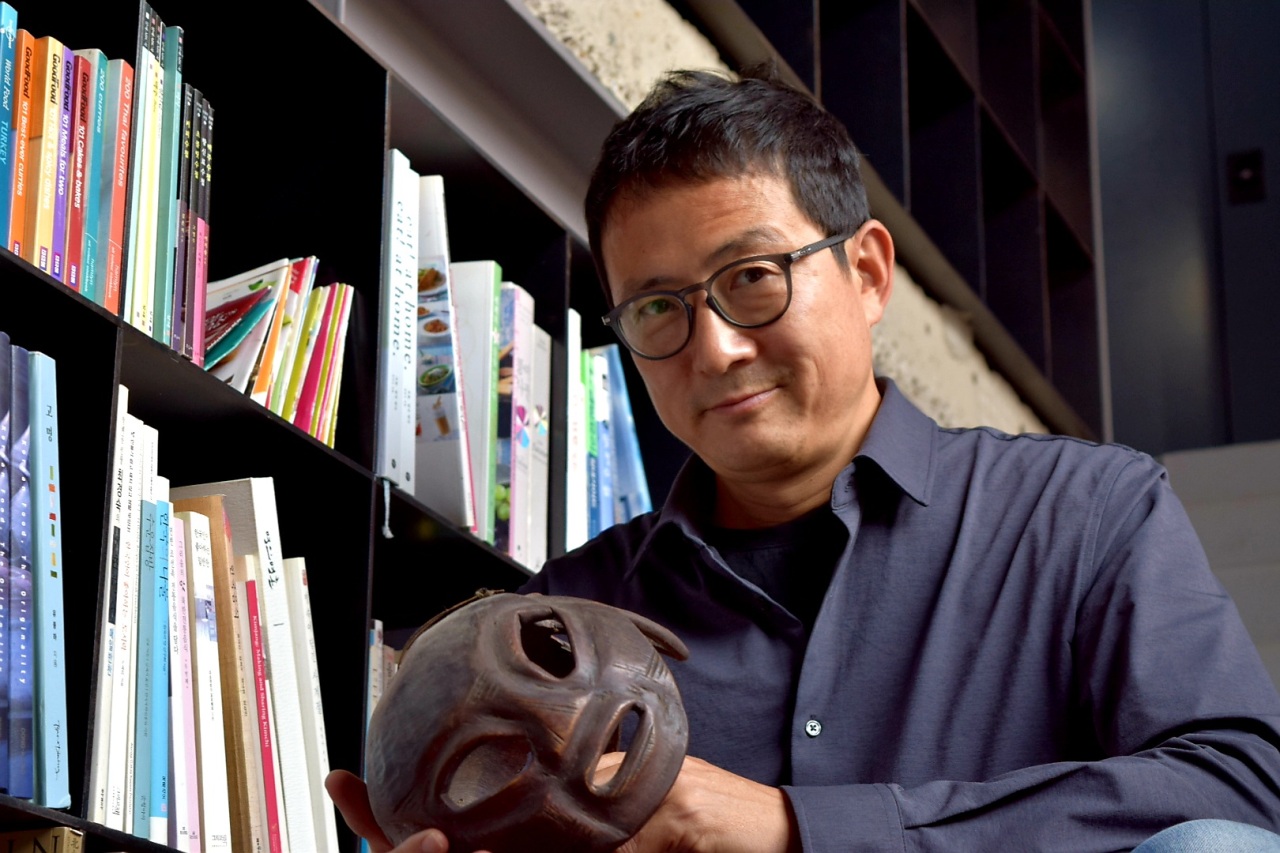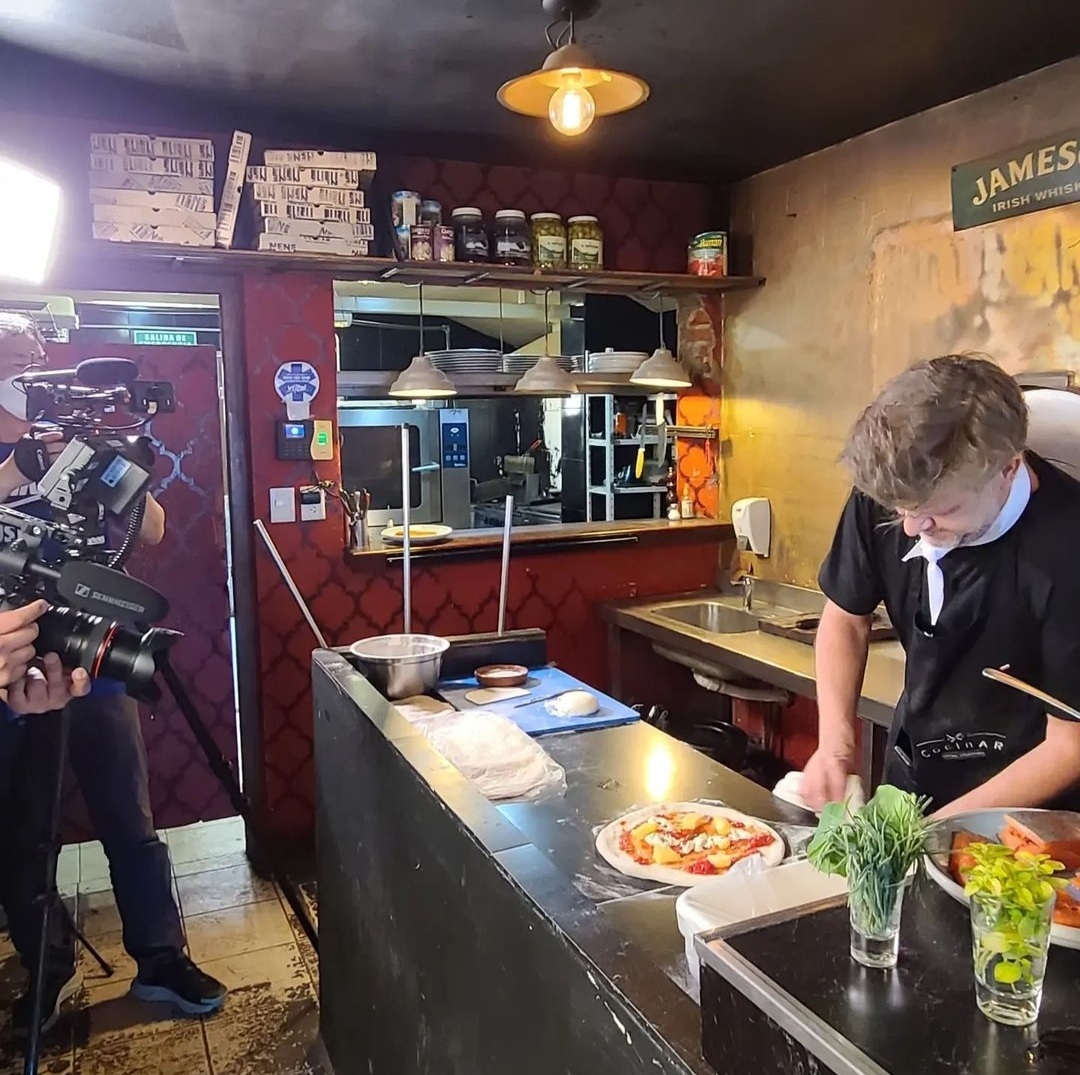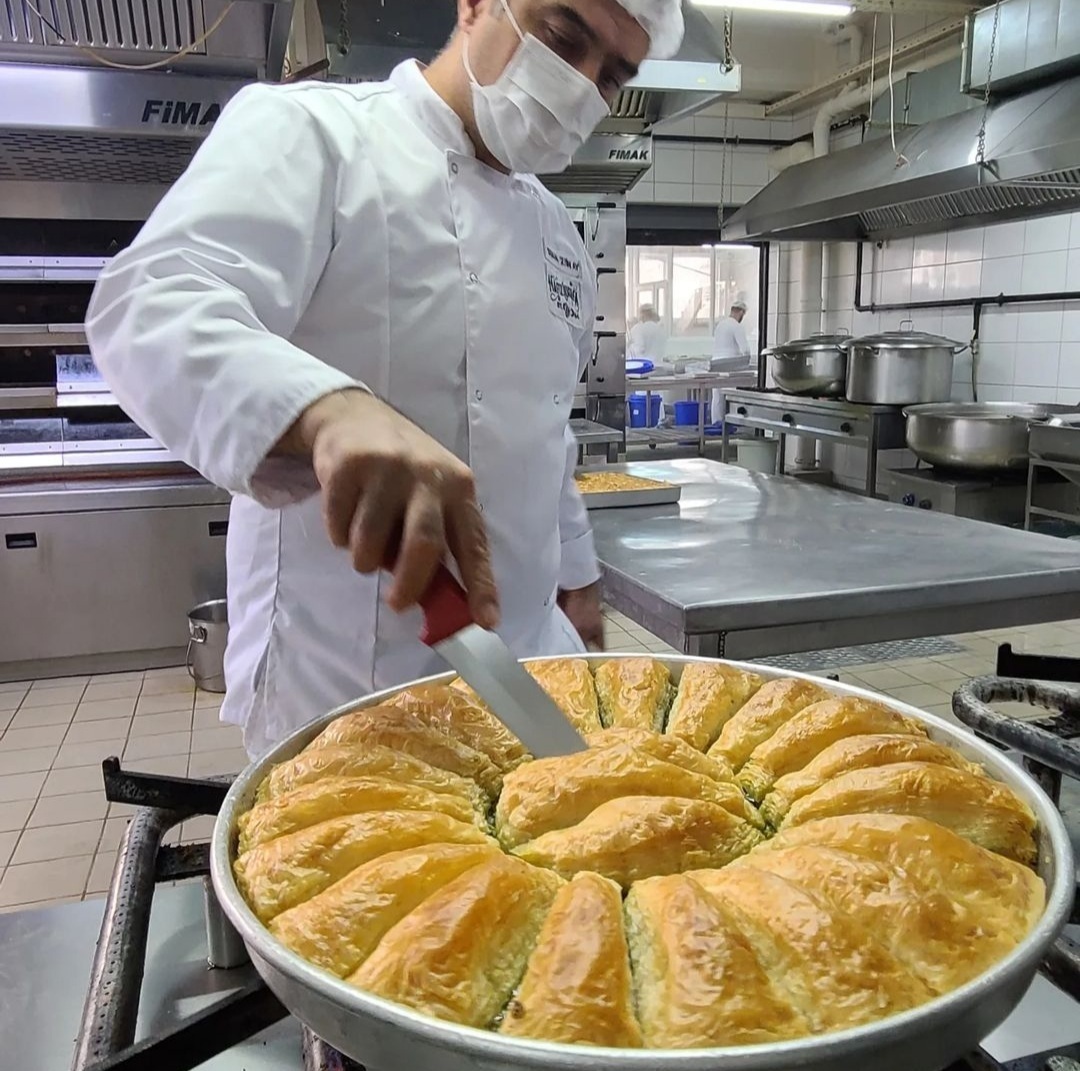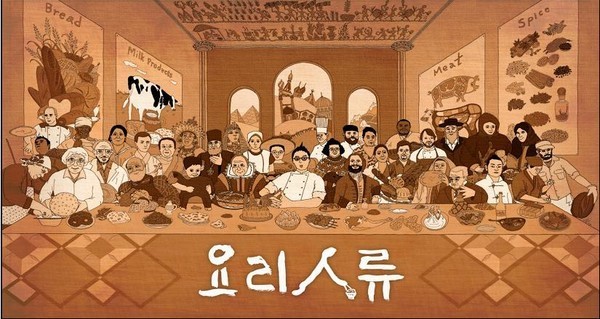
Lee Wook-jung, documentary producer and CEO of Mind at Play: Food Odyssey, poses in his office in Seoul during an interview with The Korea Herald on Friday (Kim Hae-yeon/ The Korea Herald)
Conceptualizing and categorizing food when filming a food documentary series is the strategy behind documentary producer-turned CEO Lee Wook-jung’s 30-year career. Lee pulls everything together at the end of the show, emphasizing the overarching theme that all food connects.
Speaking with The Korea Herald on his first day out of quarantine following a business trip to Argentina where he went to capture the country’s distinctive pizza, Lee seemed thrilled and rather impatient to unveil his new series, “Food Chronicle.” The series is set to be released this August on local streaming platform service TVing.
Lee started his career as a KBS TV producer in 1994 and has built a unique style of documentaries on the subject of cuisine around the world, linking them to culture and anthropology. His best-known works include “Noodle Road (2008)” and “Wook’s Food Odyssey (2014).” In 2020, he set up his own production company, Mind at Play: Food Odyssey.
“Noodle Road,” which was filmed in 10 countries over a two-year period, won documentary awards at home and abroad, including a Peabody Awards, the broadcasting industry equivalent to a Pulitzer Prize, as well as the ABU prize. The piece opened up a new path for Korean documentary directors working on the theme of food, which before had been limited to showing Korean cuisine and popular restaurants in town.

Lee films the making of a trout pizza in San Carlos De Bariloche, located in Argentina's Patagonia region, in February. (Lee Wook-jung’s Instagram)
“The true insights of my works came out not in standardized restaurants, kitchens and dining halls. I intentionally traveled to rural villages and followed through their own traditions, customs and cultural events to learn, study, and deliver the origins and cooking styles of each cuisines,” Lee said, mentioning that his approach is even more relevant today, since viewers already are familiar with and have tried global cuisines.
“When I started making documentaries, half of the viewers had never tasted a taco before. Today, almost everyone knows what tacos look like and how they taste. A documentary has to dig deeper into a dish, and discover what it was before it was exported and globalized,” Lee said.
With his academic background in English literature and cultural anthropology and culinary training at Le Cordon Bleu London, Lee became a jack-of-all-trades in the field of global cuisines. He has the skillsets to trace back and quickly understand the underlying culture and history of a specific dish on the scene, never shying away from holding up the camera to food on the table in locations around the world.
His new documentary is expected to present nine different cuisines, which are divided into three key categories -- flats, wraps and layers.

A chef making baklava in Istanbul, Turkey, in January. (Lee Wook-jung’s Instagram)
“Any dish can fit into one of the three,” Lee said, explaining pizza and jeon as flats, dumplings, tacos and ssam as wraps and sandwiches, cakes and sushi as layers.
Taking aside the convenience, practicality and portability of each menu, Lee emphasizes the aesthetically pleasing appearance of a dish as a very important factor. “We see waves on sea shores, and geological stratums on rocks. Much of what we see and feel in nature is applied to cooking and designing food.”
During his recent trip to Buenos Aires, Lee was invited to a spontaneous tango performance while trying out pizza. In a city with the largest number of pizzerias per capita in the world, Lee felt the movements of tango linked to the sadness and adversities that working class immigrants experienced in Argentina. The immigrants’ consumption of pizza as their daily meal and the restrained but vibrant tango dance was captured in Lee’s documentary on the spot.

Poster for “Wook’s Food Odyssey,” KBS’ global food documentary directed and produced by Lee in 2014. (KBS)
“Things go in an unexpected way and that is the charm of being a documentary producer. You get invited to places not on your filming itinerary. That’s OK, as long as you have the vision to connect the dots with your theme, which for me, has been and will always be, the origins of food.”
The documentary producer also had thoughts on how many people see food on their screens these days. “I often see people of my generation criticizing and devaluing mukbang. But I think it shows the core of what it means for humans ‘to eat.’ We share and talk over food on our table, and in a digitized world, we can do so by creating such live content with global neighbors.”
Besides filming documentaries, a big part of the work of Lee’s company is doing social good to communities through food. Having teamed up with major corporations and restaurants around Seoul, Lee delivers lunch boxes to poor neighborhoods on a regular basis, while also creating a sustainable environment for independent restaurant owners.
The director’s new nine-part series will be released exclusively on Tving in mid-August.
By Kim Hae-yeon (
hykim@heraldcorp.com)









![[Graphic News] More Koreans say they plan long-distance trips this year](http://res.heraldm.com/phpwas/restmb_idxmake.php?idx=645&simg=/content/image/2024/04/17/20240417050828_0.gif&u=)